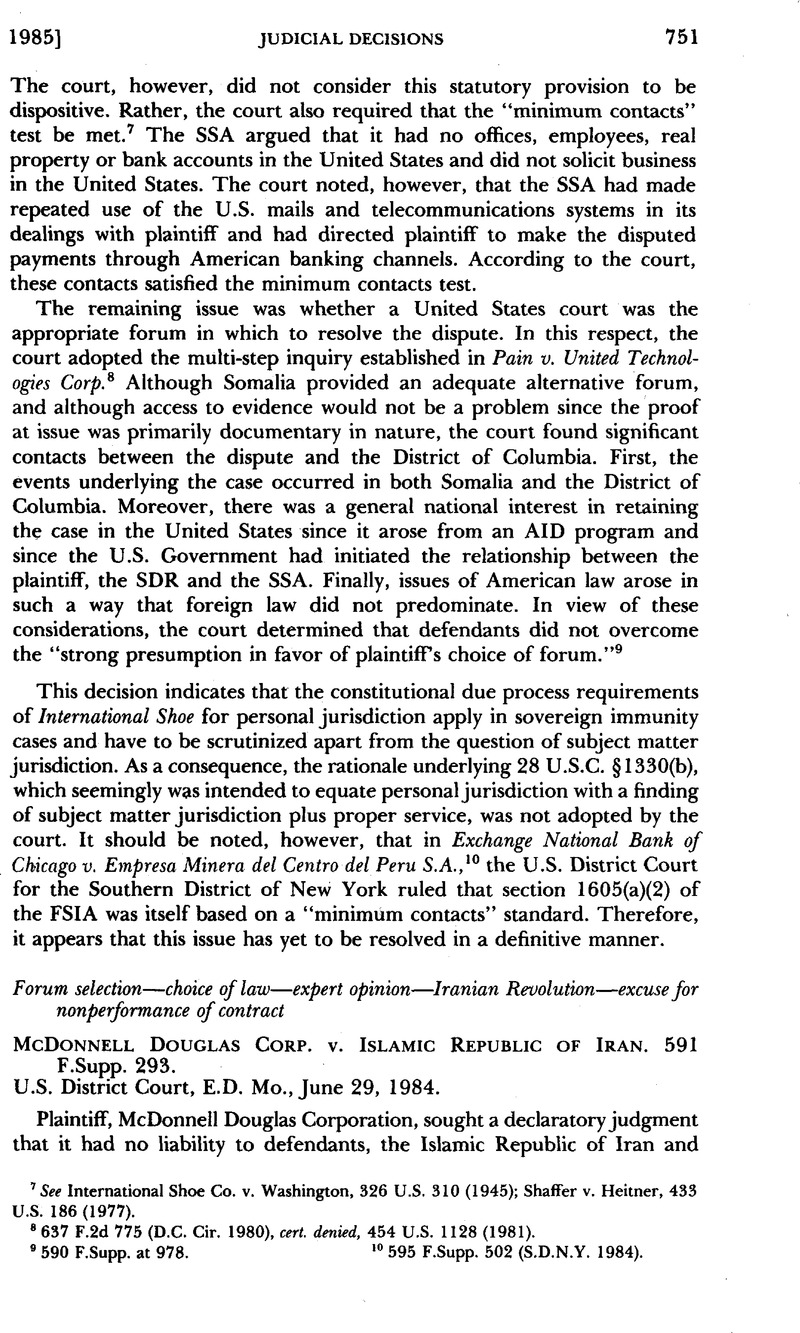No CrossRef data available.
Published online by Cambridge University Press: 27 February 2017

1 Section 1-105 of the U.C.C. provides:
Except as provided hereafter in this section, when a transaction bears a reasonable relation to this state and also to another state or nation the parties may agree that the law either of this state or of such other state or nation shall govern their rights and duties. Failing such agreement this Act applies to transactions bearing an appropriate relation to this state.
2 591 F.Supp. 293, 298.
3 407 U.S. 1 (1972).
4 417 U.S. 506(1974).
5 The court found support for this position in the Memorial of the United States of America on the Issue of Jurisdiction of the Claims Tribunal established by the Declaration Concerning the Settlement of Claims by the Government of America and the Government of the Islamic Republic of Iran of January 19, 1981. See 591 F.Supp. at 302 n.3. The Declaration excepts from the jurisdiction of the Tribunal claims that arise under a contract “specifically providing that any disputes . . . shall be within the sole jurisdiction” of the Iranian courts. The court found persuasive the contrast between the specific and exclusive selection language contained in the Declaration and the preferential nonexclusive language of the contract at issue.
6 The court noted that at the time the plaintiff had agreed to the forum selection clause, the legal system of Iran followed commercial and procedural codes modeled upon the codes of Western Europe and included courts of appellate jurisdiction and judges with substantial independence. However, subsequent to the Iranian Revolution, the Islamic Republic dissolved all courts of appeal, arranged for the replacement of all judges by Islamic seminary students and established an official anti-American stance. Based on the testimony of plaintiff’s affiant that attorneys in Iran have been executed, beaten, arrested and forced to flee for defending enemies of the Islamic Republic, the court concluded that no Iranian attorney could provide independent counsel to an American company in litigation against the Iranian Government. On these and related grounds, the court concluded that plaintiff could not obtain a fair adjudication in Iran.
7 See Dissenting and Concurring Opinion of Richard M. Mosk on the Issues of Jurisdiction in Case Nos. 6, 51, 68, 121, 140, 159, 254, 293 and 466, Nov. 5, 1982, reprinted in Iranian Assets Litigation Rep., Nov. 19, 1982, at 5670.